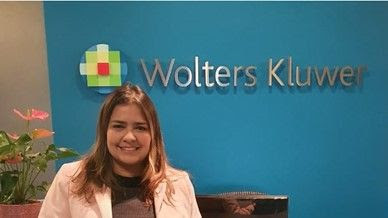 * By Juliana Gomes
* By Juliana Gomes
The year 2020 was undoubtedly even more challenging for health institutions, not only in Brazil but also in the world. If the well-known difficulties of the health ecosystem as a whole were not enough, the COVID-19 pandemic “rocked” the structures in the country even more.
There were (and continue to be) innumerable obstacles and challenges, of different orders. And one of them is certainly related to the protagonists, that is, who throughout these months has been at the forefront of care.
In the midst of all this adversity, in addition to many being contaminated by Covid-19, others left the day-to-day due to the burnout or Professional burnout syndrome, as this disease of the modern world is also known. And the scenario was very favorable for this: overworked professionals, close to patients and distant from family members, physically and mentally exhausted, facing a totally unknown disease.
In the beginning, misinformation predominated. There was no evidence or studies, in addition to the absence of a structure for care and with mortality rates increasing more and more. Doctors, nurses, pharmacists, among others, dedicated themselves to the utmost to assist patients, without knowing what they were dealing with.
Researchers had to race against the clock in the quest to create new scientific research and in the execution of new clinical trials. It was necessary to create references literally overnight, without losing the rigor.
The speed of new publications was impressive in this period. Anxiety about healing made people from all over the world start studies and rush to publish content, even without strict criteria, on the subject. Over time, the scenario of lack of information has been inverted and a lot of information related to the disease has emerged, much of it without quality and without scientific support. The parameters that doctors followed in terms of conduct in one day, no longer fit the next. And, again, news that demanded a huge response speed from health professionals.
Clinical doubts happen several times every day. New diseases and new pandemics can arise at any time and the health professional, being on the front line, suffers continuous pressure and needs, in addition to adequate rest moments, mechanisms to support the decision-making process that can bring greater security.
It is important to focus on the lessons learned, which includes facilitating access to high quality information validated by experts. And this, in fact, can be done by improving the browsing experience and allowing health professionals to easily, effortlessly and barrier-free access the information they need within the care flow. Even because we know that the excess is not good either. Many clicks and a series of systems to consult and feed can also be more of a hindrance than a help.
This is where the combination of evidence-based medicine and technology can make a difference. It allows healthcare professionals to adopt more efficient care approaches, responding clearly and concisely to important clinical questions based on the best evidence. The result: safer, more qualified professionals and less likely to get sick. It is certainly worth thinking about.
* Juliana Gomes is the leader of new business and projects for Wolters Kluwer Health in Brazil
Notice: The opinion presented in this article is the responsibility of its author and not of ABES - Brazilian Association of Software Companies













